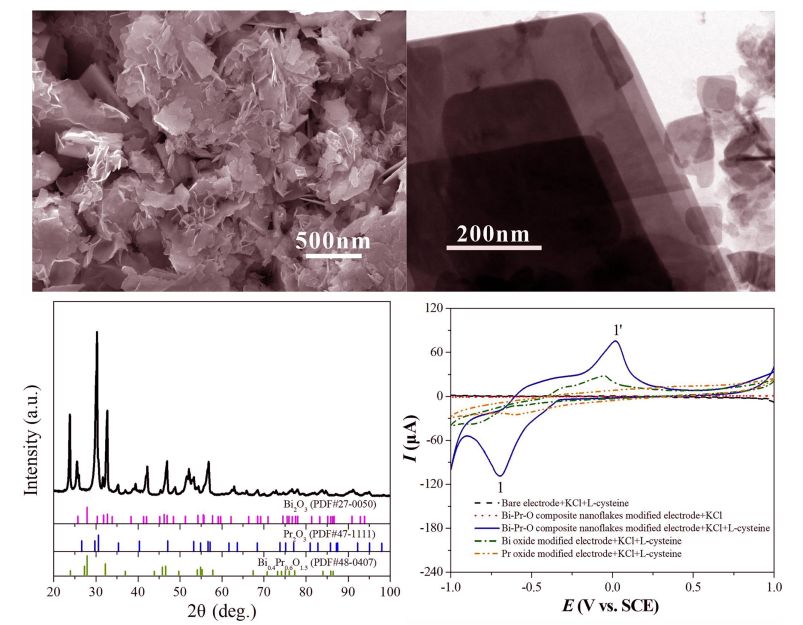Volume 21, Issue 4
Displaying 1-20 of 20 articles from this issue
- |<
- <
- 1
- >
- >|
Review Paper
-
Article type: Review Paper
Subject area: Nano-Science and -Technology
2023Volume 21Issue 4 Pages 241-250
Published: May 04, 2023
Released on J-STAGE: September 16, 2023
Advance online publication: May 04, 2023Download PDF (985K)
Regular Papers
-
Article type: Regular Paper
Subject area: Crystal Growth
2023Volume 21Issue 4 Pages 251-256
Published: April 15, 2023
Released on J-STAGE: September 16, 2023
Advance online publication: April 15, 2023Download PDF (975K) -
Article type: Regular Paper
Subject area: Vacuu
2023Volume 21Issue 4 Pages 257-261
Published: April 22, 2023
Released on J-STAGE: September 16, 2023
Advance online publication: April 22, 2023Download PDF (1532K) -
Article type: Regular Paper
Subject area: Nano-Materials
2023Volume 21Issue 4 Pages 262-266
Published: May 04, 2023
Released on J-STAGE: September 16, 2023
Advance online publication: May 04, 2023Download PDF (1463K) -
Article type: Regular Paper
Subject area: Nano-Science and -Technology
2023Volume 21Issue 4 Pages 267-272
Published: May 18, 2023
Released on J-STAGE: September 16, 2023
Advance online publication: May 18, 2023Download PDF (1546K) -
Article type: Regular Paper
Subject area: Electronic Properties
2023Volume 21Issue 4 Pages 273-277
Published: May 27, 2023
Released on J-STAGE: September 16, 2023
Advance online publication: May 27, 2023Download PDF (1157K) -
Article type: Regular Paper
Subject area: Structure
2023Volume 21Issue 4 Pages 278-283
Published: May 27, 2023
Released on J-STAGE: September 16, 2023
Advance online publication: May 27, 2023Download PDF (1824K) -
Article type: Regular Paper
Subject area: Nano-Materials
2023Volume 21Issue 4 Pages 284-291
Published: June 03, 2023
Released on J-STAGE: September 16, 2023
Advance online publication: June 03, 2023Download PDF (3767K) -
Article type: Regular Paper
Subject area: Electronic Properties
2023Volume 21Issue 4 Pages 292-299
Published: June 08, 2023
Released on J-STAGE: September 16, 2023
Advance online publication: June 08, 2023Download PDF (2038K) -
Article type: Regular Paper
Subject area: Interdisciplinary
2023Volume 21Issue 4 Pages 300-304
Published: July 08, 2023
Released on J-STAGE: September 16, 2023
Advance online publication: July 08, 2023Download PDF (3608K) -
Article type: Regular Paper
Subject area: Structure
2023Volume 21Issue 4 Pages 305-309
Published: July 13, 2023
Released on J-STAGE: September 16, 2023
Advance online publication: July 13, 2023Download PDF (3363K) -
Article type: Regular Paper
Subject area: Nano-Materials
2023Volume 21Issue 4 Pages 310-317
Published: July 20, 2023
Released on J-STAGE: September 16, 2023
Advance online publication: July 20, 2023Download PDF (5220K)
Conference—IVC-22—
-
Article type: Proceeding Paper
Subject area: Interdisciplinary
2023Volume 21Issue 4 Pages 318-323
Published: April 15, 2023
Released on J-STAGE: September 16, 2023
Advance online publication: April 15, 2023Download PDF (1084K) -
Article type: Proceeding Paper
Subject area: Thin Films
2023Volume 21Issue 4 Pages 324-330
Published: May 13, 2023
Released on J-STAGE: September 16, 2023
Advance online publication: May 13, 2023Download PDF (2378K) -
Article type: Proceeding Paper
Subject area: Thin Films
2023Volume 21Issue 4 Pages 331-336
Published: May 13, 2023
Released on J-STAGE: September 16, 2023
Advance online publication: May 13, 2023Download PDF (1707K) -
Article type: Proceeding Paper
Subject area: Structure
2023Volume 21Issue 4 Pages 337-343
Published: May 18, 2023
Released on J-STAGE: September 16, 2023
Advance online publication: May 18, 2023Download PDF (1994K) -
Article type: Proceeding Paper
Subject area: Vacuum
2023Volume 21Issue 4 Pages 344-349
Published: May 18, 2023
Released on J-STAGE: September 16, 2023
Advance online publication: May 18, 2023Download PDF (2724K) -
Article type: Proceeding Paper
Subject area: Vacuum
2023Volume 21Issue 4 Pages 350-358
Published: July 08, 2023
Released on J-STAGE: September 16, 2023
Advance online publication: July 08, 2023Download PDF (4398K) -
Article type: Proceeding Paper
Subject area: Vacuum
2023Volume 21Issue 4 Pages 359-364
Published: July 08, 2023
Released on J-STAGE: September 16, 2023
Advance online publication: July 08, 2023Download PDF (2406K) -
Article type: Proceeding Paper
Subject area: Environmental and Energy Technology
2023Volume 21Issue 4 Pages 365-372
Published: July 20, 2023
Released on J-STAGE: September 16, 2023
Advance online publication: July 20, 2023Download PDF (6311K)
- |<
- <
- 1
- >
- >|




















